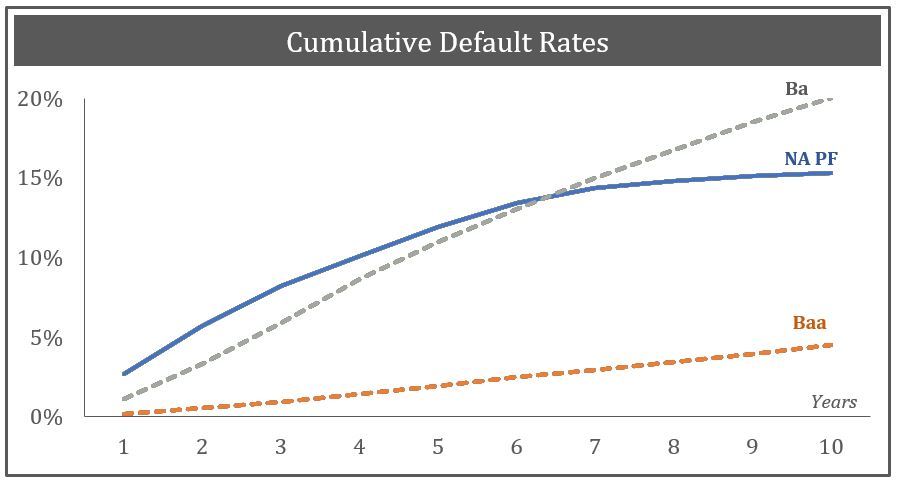According to Frank Decker, Honorary Associate at the University of Sydney Law School, it certainly can. Not only that, but eschewing savings in favor of “monetisation of assets” will yield better results! I refer to his article inEconomic Affairs–Volume 37, Number 3, October 2017–, a publication of the Institute of Economic Affairs, London.
Mr. Decker purports to answer the question “Central Bank or Monetary Authority? Three Views on Money and Monetary Reform.” The three views examined are commodity money, state money, and money as a derivative of property. All three views are explained very well, and a beginner to the study of the role of money will learn a lot in a short period of time.
Commodity money is the name Decker aptly gives to money backed by gold or some other widely accepted medium of indirect exchange. Commodity money’s proponents see two major advantages–that it ends inflation and the business cycle. He quotes Mises and Rothbard to good effect.
State money, or money as a state liability, is fiat money that all the world knows today. Its two most famous proponents are Keynes and Friedman. State money’s main advantages, as seen by Decker, are that the state can engage in countercyclical spending and the state can fund itself by printing all the money that it needs for current expenditures.
Decker’s third type of money–money as a derivative of property–sounds no different than fractional reserve banking, except that the fraction of reserves required to be held by the lending banks is so low that it is not a factor of lending restraint. Decker gives the example of a business that uses its assets as loan collateral. According to Decker, the money that the bank creates is NOT created out of thin air, because it is backed by private property; i.e., the loan collateral. According to this theory, money can be created ad infinitum, because each round of loans creates new property with which to engage in another round of property-backed money creation. If this isn’t money “out of thin air”, I don’t know what is!
Decker desires to find the best monetary regime to promote economic development. Of the three money systems, he settles upon a property based system with a central bank as benign overseer. His choice of this system, such as it is, shows his lack of knowledge of economic theory. In fact, he is a thorough empiricist, with all the limitations that are emblematic of trying to gather billions of facts with which to determine cause and effect. Austrian economists know that economics is a deductive science in which reliable conclusions can be drawn by using proper logic based upon irrefutable maxims.
Decker’s two reasons for passing over commodity money are rather astounding. He believes that commodity money would “impose limitations on civil liberties and property rights”, because “Countless episodes of monetary history show that economic actors will always find ways to monetise their assets.”. He is certain that banks will continue to engage in creating money substitutes out of thin air–i.e., paper money and/or book deposits–even though it is against normal commercial law or, under a free banking system, that money creation would be limited by normal banking presentment practices. But most damaging, according to Decker, is that commodity money would restrict a nation’s development. Astonishingly he states that “Commodity money would also retard economic development, as the monetisation of assets allows investment without the prior accumulation of savings,…”! In other words, why save when capital can be created ex nihilo at the stroke of a computer key? Counterfeiters must be wondering why they are persecuted when their actions are actually beneficial!
Decker equates capital with book entry capital accounts. It is as if an Iowa farmer believed that he could acquire seed corn by making an entry on his books. He would not have to save some corn from last year’s crop; he could consume it all and perhaps plant pieces of paper. Of course, this capital that Decker believes appears magically actually comes from real people giving up real assets. Frederic Bastiat’s That Which Is Seen, and That Which Is Not Seen and Richard Cantillon’sinsight that money enters the economy at specific places, unduly rewarding specific individuals (the Cantillon Effect), could not be more appropriate.
In order for Decker to be correct he must see new factories, houses, etc. arising and believe that nothing was sacrificed to build them. But clearly that is not how the world works. The sacrifice is there, even if NOT seen. Inflating the money supply robs current holders of assets, those who sacrificed and saved, for the benefit of the earlier receivers of the new money. It is a transfer of wealth, not an increase in wealth.
Decker sounds like a gambling addict who counts only his winnings and not his losses. The winners are the earliest receivers of the new money, who can buy at existing prices. Later receivers see increasingly higher prices and/or lower returns on investment.
Today’s interest rate suppressions that favor borrowers come at the considerable expense of savers, many of whom are retired. Their standard of living deteriorates, but, since Decker cannot find statistics to record this fact, he believes that it is not happening. He fails to go that next and necessary step to consider that which is both seen and unseen, per Bastiat’s timeless insight.
No individual or group of supposedly wise men should ever be given the power to create money out of thin air or to manipulate the interest rate. Only commodity money, which is controlled by no one, can protect private property and perform the market’s time coordination function, AKA the interest rate. Spending requires prior savings, and savings cannot be spent twice.
The old saving that “there is no such thing as a free lunch” needs an addendum–Somebody always pays.
Source: http://patrickbarron.blogspot.co.uk/



“…with a central bank as benign overseer..” Oh ha ha. Quite clearly that’s a pipe dream, and where it all falls down.